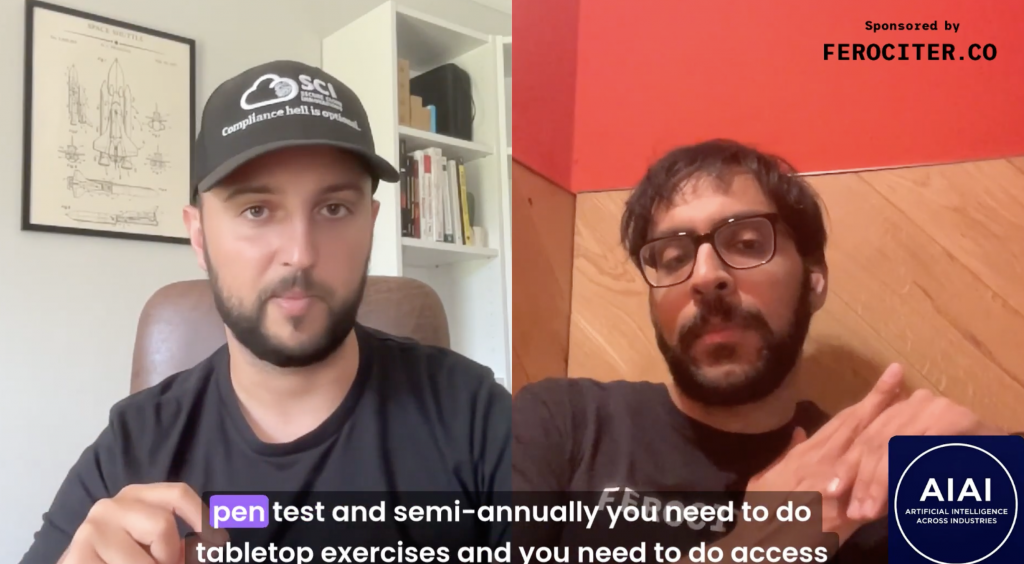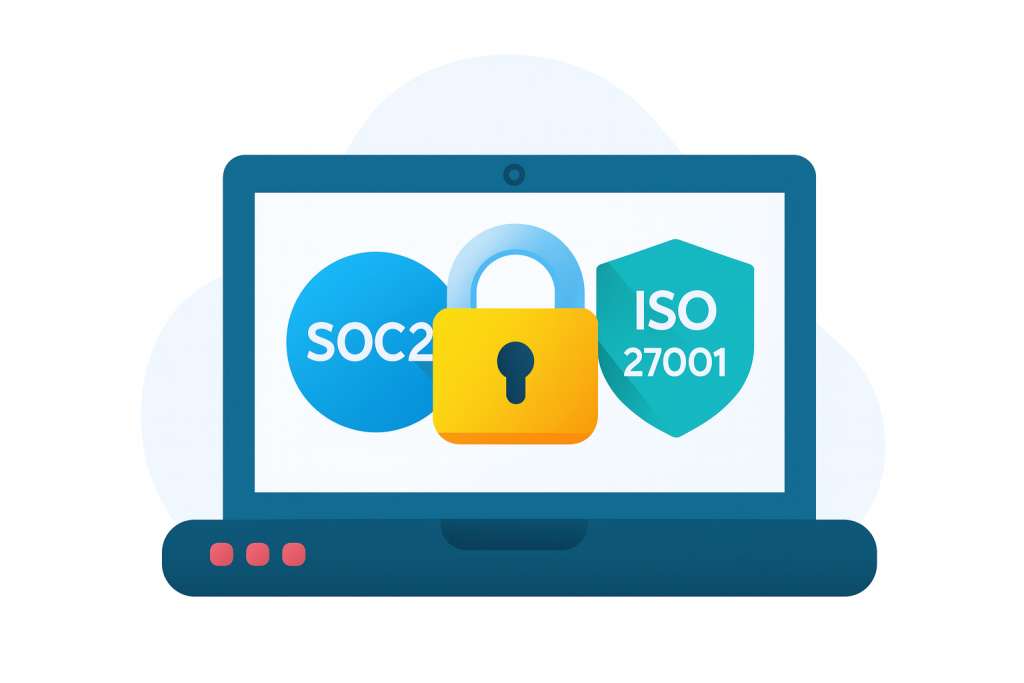GRC Room: Five Questions with SCI’s Caleb Mattingly
Hosts: Mike Andrews & Karina Clever (Clever Compliance) • Guest: Caleb Mattingly, Founder of Secure Cloud Innovations (SCI)
Policies vs. controls, healthcare breaches, and why hands-on cloud engineering beats shortcuts. This is a lightly edited transcript to preserve the voices of Mike, Karina, and Caleb.
Quick Hits
- Policies vs. controls is the common stumbling block—what’s required vs. what’s best practice, plus cadence for each activity.
- Compliance ≠ security. Treat frameworks as a floor, not the finish line.
- Cloud engineering + automation (Terraform, CI) can slash timelines without cutting controls.
- A neutral gap assessment often delivers the biggest near-term lift in posture and sales velocity.
Q1) What part of cyber GRC do businesses struggle with most?
Caleb: Policies—and specifically how those policies map to controls and cadence. Teams ask what’s truly required for SOC 2 / ISO 27001 / GDPR / HIPAA, and how often to do access reviews, log reviews, and tabletops.
Takeaway: Bake controls and owners into your policies, with clear review frequencies.
Q2) A data breach that stands out?
Caleb: Healthcare. We saw a neurology practice using personal email accounts for patient info—classic hygiene gap that leads to breaches.
Mike: If a provider insists on fax, you’ve basically done a quick risk assessment—and it didn’t go great.
Takeaway: Don’t assume HIPAA maturity. Verify managed email, MFA, logging, backups, and secure data flows.
Q3) Most impactful GRC advice you’ve received?
Caleb: An auditor told me: “Never tell customers they’re secure once they’re compliant.” Compliance is a great step, not a shield. Plenty of SOC 2/ISO-certified companies still get popped.
Karina: Minimum-viable, checkbox compliance leaves visible holes attackers know to target.
Mike: There’s also a legal angle—avoid absolute “we are secure” claims.
Takeaway: Market honestly. Aim for resilient operations, not just a logo.
Q4) What does SCI do differently?
Caleb: We come from cloud security engineering, not just governance. We embed and make hands-on cloud changes. We’ve built Terraform modules and tooling that implement many control requirements in minutes—without removing controls.
Mike: That startup-friendly, practical approach lets teams focus on product and growth.
Takeaway: Speed should come from automation + expertise, not from cutting scope.
Q5) One thing a business can do today to strengthen GRC?
Caleb: Get a third-party gap assessment (Clever Compliance, SCI, or a trusted partner). Outside the audit window, you’ll get frank feedback on missing controls and higher-leverage security improvements. We’ve seen enterprise sales cycles drop from 12–18 months to 4–6 months after SOC 2/ISO readiness plus credible security practices.
Karina: It’s never an arrival—GRC is an operating rhythm, like product.
Takeaway: Targeted assessment + practical fixes = better posture and faster deals.
Favorite Quotes
“Compliance doesn’t equal security. Treat it as the floor, not the ceiling.”
— Caleb Mattingly
“Don’t decouple documentation from controls. Bake the controls into your docs.”
— Karina Clever
“Shortcuts come back to bite. Startups talk—trust compounds when you do it right.”
— Mike Andrews
What to Do Next
- Get a gap check: Identify missing controls, fix cadence, and harden cloud basics.
- Tie docs to controls: Ensure every policy carries testable, owned controls.
- Automate the boring stuff: Use Terraform/CI for secure defaults—then verify.
Need a hand? We embed with startups to implement, evidence, and maintain controls—without cutting corners.




